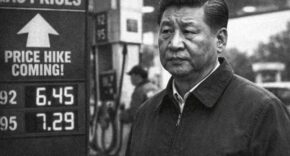In both socialist and capitalist systems, mass media has the power to shape public opinion, raising concerns about information manipulation and potential censorship. Those in power often use media to promote their interests and suppress dissenting voices, leading to a homogenization of thought and a loss of diversity in public discourse.
While the founding fathers did not explicitly address media ownership and concentration, their concerns about concentrated power are relevant. Media monopolization limits the range of viewpoints available to the public, undermining citizens’ ability to make informed decisions and hold their government accountable. Promoting diversity and competition in the media and protecting press freedom are crucial for ensuring the media serves as an independent check on power in a democracy. However, the enforcement of regulations on media concentration by the FCC remains weak.
The First Amendment guarantees press freedom and aims to ensure diverse and competitive media ownership, presenting a variety of philosophies and opinions to the public. There is growing concern in America that the government has not adequately protected the freedom of an independent, truthful, and unbiased press, with accusations of media being used for misdirection and ideological polarization.
However, mass media can also have positive effects if used responsibly. In socialist systems, media can promote collective values and social responsibility. In capitalist systems, media can promote accountability, transparency, and provide a platform for diverse perspectives.
The use of mass media to shape public opinion is complex and requires careful consideration of its benefits and drawbacks. The legacy of unethical practices, such as the CIA’s mind control experiments, highlights the dangers of unregulated media. However, responsible use of mass media can promote informed and critical thinking, fostering a more engaged and socially responsible society.
Is there a grand plan to influence public opinion through advertising, public relations, lobbying, and propaganda? This is a question worth considering.
As the newest generation entering the workforce, Gen Z (born between the mid-1990s and mid-2010s) has already made a significant impact with their unique perspectives, digital fluency, entrepreneurial spirit, and focus on transparency and social consciousness. However, some Gen Zers embrace ideas about wealth redistribution and government involvement in ensuring equality, reminiscent of the Frankfurt School’s critical theory from the 1930s and 1940s. While these ideas can sound appealing, they may be counterproductive in the pursuit of wealth creation and financial success.
Instead, Gen Z should consider embracing dealmaking and wealth creation as strategies for building a sustainable and prosperous future.
Why Dealmaking and Wealth Creation Matter:
- Promotes Individual Initiative and Entrepreneurship: Important for Gen Zers who want to make an impact and achieve success on their terms.
- Powerful Tool for Social Change: Creating successful businesses and generating wealth can fund and support social initiatives that align with Gen Z values.
- Requires Innovation and Creativity: Essential skills for tech-savvy, globally connected Gen Zers.
- Financial Independence and Self-Reliance: Helps avoid over-reliance on government programs and creates more opportunities.
- Encourages Competition: Leads to better products, services, and outcomes, promoting ethical and responsible business practices.
- Provides Financial Security and Stability: Crucial for Gen Zers facing economic challenges like student loan debt and a competitive job market.
- Promotes Risk-Taking and Resilience: Important qualities for navigating a rapidly changing world.
- Opportunity to Create Generational Wealth: Helps break the cycle of poverty and create lasting legacies.
- Requires Long-Term Vision and Strategic Planning: Skills needed for sustainable, successful businesses.
- Tool for Social Mobility: Promotes diversity, equity, and inclusion, creating a just and prosperous society.
In conclusion, while some Gen Zers may be drawn to socialistic/Marxist ideas, dealmaking and wealth creation offer a more effective and sustainable approach to creating wealth and promoting social change. A market-based system supports Gen Z aspirations of hope, opportunity, and a good life for all citizens and immigrants seeking freedom and opportunity.
By embracing these values, Gen Z can create a brighter future for themselves, their communities, and America. God Bless America!










